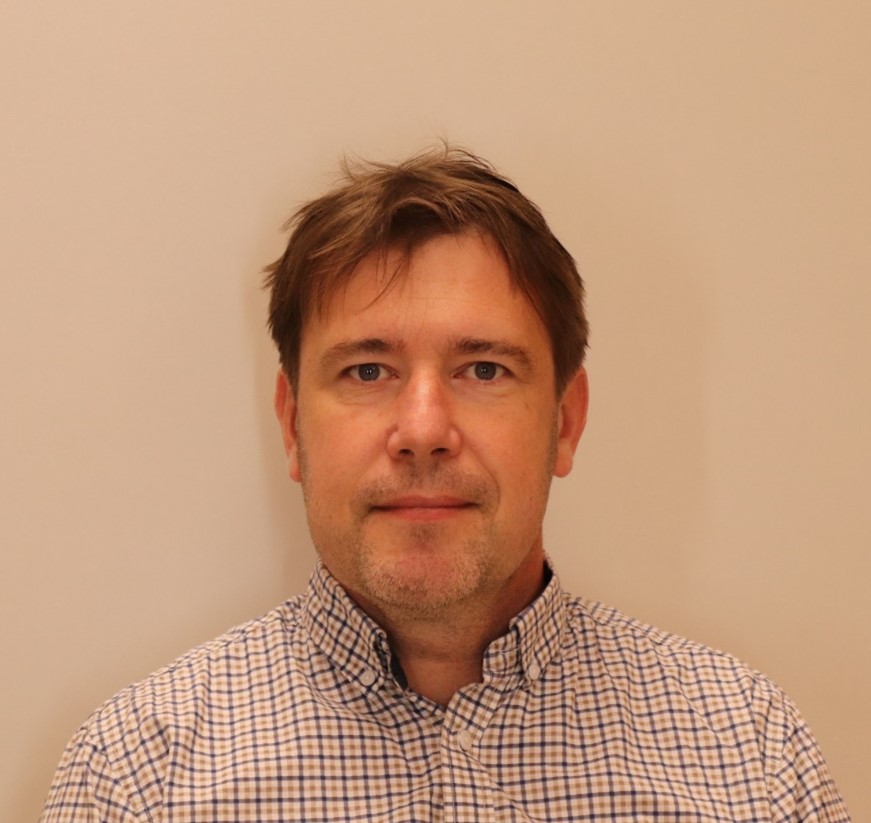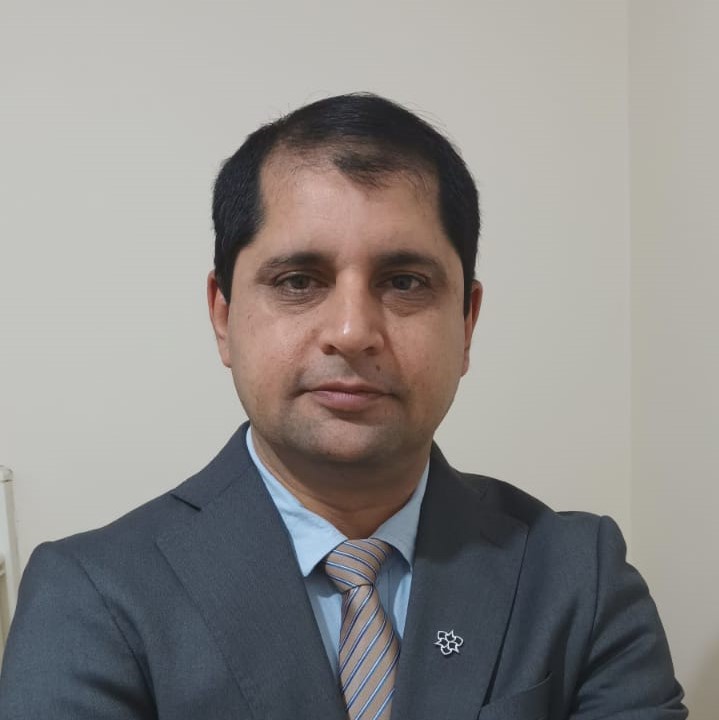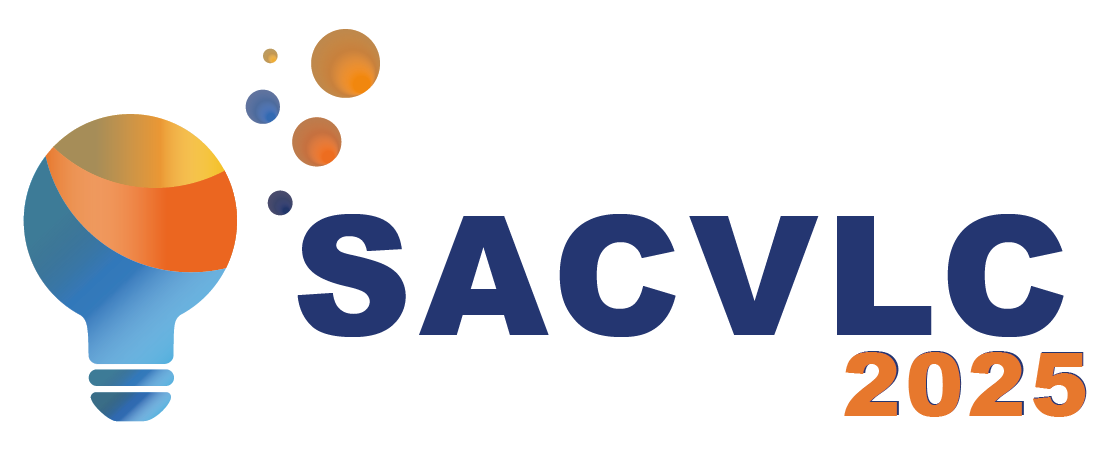KEYNOTE SPEAKERS 2023
Hybrid Optical Wireless Communication Systems

In recent years, we have seen the introduction of all-optical hybrid wireless technologies in Internet of things (IoT), including visible light communication (VLC), optical camera communication (OCC), and free space optical (FSO). This keynote will provide recent research activities within hybrid optical wireless communication (OWC) covering FSO-VLC for last-meter (i.e., mostly indoor) and last-mile (i.e., outdoor) access networks, hybrid full-duplex polymer optical fiber-based VLC transmission links along with the involvement of illuminating fibers within OCC and hybrid VLC-OCC links for versatile IoT environments and application such as device to device, vehicular or localisation etc.
Short Bio
Prof. Stanislav Zvanovec received his M.Sc. and Ph.D. degrees from Czech Technical University (CTU) in Prague, Prague, Czech Republic, in 2002 and 2006, respectively. He is currently a Full Professor and the Deputy Head of the Department of Electromagnetic Field and leader of the Wireless and Fiber Optics team, CTU (http://optics.elmag.org/). He is the author of 2 books (including Visible Light Communications: Theory and Applications) and more than 350 journal articles and conference papers. He is the main leader of several national and international projects (project coordinator of new HORIZON-MSCA-DN Project «OWIN6G» Optical and Wireless Sensors Networks for 6G Scenarios) and WP3 chair of COST CA19111 project European Network on Future Generation Optical Wireless Communication Technologies (NEWFOCUS). His current research interests include free-space optics (FSO), visible light communications (VLC), optical camera-based communications (OCC) and fiber optical systems including RF over optics (RoF and RoFSO).
Optical Camera Communications for Future Networks

His research focuses on optical wireless communication with the integration of artificial neural networks-based equalizers, localization, and extended realities. He has published over 20 scholarly publications in this domain and currently serves as a reviewer for various academic journals, including IEEE Communication Letter, IEEE Access, IEEE Photonics Journal, and IEEE Transactions on Communications.
Short Bio
Dr Othman I. Younus received his Ph.D and M.Sc. degrees from Northumbria University, Newcastle Upon Tyne, UK in 2022 and 2019, respectively. He is currently a Research Fellow and Associate Lecturer in Optical Communications in the same institute and serves as England’s representative of IEEE Young Professionals in the UK and Ireland section. He is also a member of IET, the Photonics Technology Lab and the Northumbria Space Technology Laboratory.
Dr Othman I. Younus has been distinguished as a global talent in the field of optical wireless communication by the Royal Academy of Engineering. His current work involves developing the UK's first inter-satellite laser communications between CubeSats, funded by the UK Space Agency and expected to be launched in 2025.
Challenges in free-space optical communication for the classical and the quantum domains

Free-space optical (FSO) communications not only have become a viable solution for the connection of networks in terrestrial scenarios –where optical fiber installation is too costly or difficult– but they appear as the preferable choice once longer distances or off-ground links are needed. In this talk we will discuss the intrinsic and technical challenges that remain in expanding the use of FSO laser communication links to support high-speed, secure optical networks, both terrestrial and ground-to-satellite, and the possibility of increasing the robustness and data rate by means of high-dimensional optical signals and adaptive optics in the classical and in the quantum domains.
Short Bio
Jaime Anguita obtained his bachelor’s degree and Engineering title in Electrical Engineering from Universidad Católica de Chile. He worked at the European Southern Observatory in the optical detectors team. He obtained the MSc (2004) and PhD degrees (2007) in Electrical Engineering at University of Arizona, USA. In 2009, he founded the Optical Communications Laboratory at Universidad de los Andes, Chile, where he is currently a professor. He is a lead researcher in the Millennium Institute for Research in Optics (MIRO), one of the largest grant funds in Chile for associative research. His interests are free-space optical communications, optical channel characterization, modulation and error-correction coding, and quantum communications. He is a member of the IEEE, Optica, and SPIE societies and Chair of the SPIE Laser Communication and Propagation conference.
Wireless Communication for IoT in Water Environments

This talk will explore some of the most significant challenges faced by wireless communication technologies when implementing the Internet of Things (IoT) paradigm in water environments (e.g., coastal marine zones, lakes, and estuaries). It will provide an in-depth summary of recent findings related to overwater RF propagation for WiFi and LoRa technologies, with a particular emphasis on the detrimental effects of tides and intertidal zones on link quality. The presentation will cover both theoretical and experimental insights into channel modeling and characterization across various settings, showcasing results for emerging IoT use cases involving overwater sensor networks and wireless-networked autonomous vessels. Notably, the talk will share innovative methods designed to predict and mitigate signal degradation caused by water-related influences, while demonstrating potential improvements of up to 40 dB.
Short Bio
Miguel Gutiérrez Gaitán is an Assistant Professor at the Faculty of Engineering of the Andrés Bello University (UNAB) in Santiago, Chile. He holds a PhD in Electrical and Computer Engineering from the University of Porto, Portugal, an MS in Telecommunications Engineering from the Polytechnic University of Turin (PoliTo), Italy, and a BS in Electronics Engineering from the Pontifical Catholic University of Valparaíso (PUCV), Chile. Since 2023, he is also the Chairman of the IEEE ComSoc Chile Chapter, and a Research Associate at the Research Centre in Real-Time and Embedded Computing Systems (CISTER), in Porto, Portugal. Dr. Gutiérrez Gaitán has (co-)authored more than 25 peer-reviewed publications in relevant journals and conferences including, IEEE Sensors Journal, IEEE WF-IoT, IEEE RTSS, IEEE VTC, and IEEE GLOBECOM. Among other honors and awards, he received the «Best Paper Award» at the RAGE Workshop at DAC 2022, and the «Best Work-in-Progress Paper Award» at IEEE WFCS 2021. His main research interests cover different aspects of wireless networks, real-time communication, and IoT, with emphasis on the vehicular, maritime and industrial domains.
Visible light Positioning: advances and challenges

Using VLC for indoor positioning is one of the most promising uses for this technology and is generally referred to as visible light positioning (VLP). Recently, VLP is an active area in research for 6G technology and it has great promise for real-life applications. This is largely due to the wide range of potential applications accelerated by leveraging, industry 4.0, the internet of things (IoT) and the demand for a more customised experience in indoor spaces. Additionally, the wide adoption of smartphones and wearable devices by the public meant that VLP can be provided to any user for localisation and guiding purposes. However, with the advances in VLP for indoor applications such UAVs, there are still many challenges to practical implement it at different system levels. This talk will cover the recent research in 3D VLP systems, particularly its advances and challenges.
Short Bio
Dr Ijaz has received his M.Sc. in Optoelectronic and Communication Engineering from Northumbria University at Newcastle upon Tyne, UK in 2009. He has also been awarded Northumbria University studentship to pursue his Ph.D. He was awarded his PhD degree in 2013 at the same Northumbria University, UK for his research work in Free-Space Optical (FSO) Communications. He also worked as Research Fellow in Visible Light Communication/LiFi at University of Edinburgh, UK between 2013-15.
Dr Ijaz is currently working as Reader (Associate Prof.) and International Lead at Department of Engineering, Manchester Metropolitan University, UK. He is also head of Laser and Optics Communication (LOC) lab from 2017 at the department where he is leading applied research and has been working with a number of industries, technopreneurs, international collaborators and successfully leading knowledge transfer partnership projects funded by Innovate UK in the areas of optical wireless communications, embedded systems, IoT, cloud, communication networks 6G, digital signal processing and smart sensors design and secure more than £900K funding from 2020-2023. He has an exciting publication record (85 in total) with high quality journals mostly in Quartile 1, one book chapter, and high-quality conference papers, international collaboration, research presentations and awards.
